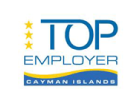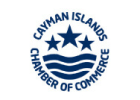Immigration: Moving to the British Virgin Islands
by Tiara Armitage on July 19, 2023
Are you looking into making a move to the British Virgin Islands? In this blog, our team goes through what to expect when moving to the BVI so that you can clearly understand what is and is not possible.
The British Virgin Islands are an incredible place to work and live, so it's no wonder many people wish to call the islands home. As a result, there are immigration regulations that are put in place to safeguard the local population so that they are given ample opportunity first and foremost before employers can look to import talent.
This blog will give you a breakdown of the immigration process and answer a few frequently asked questions that our recruitment team receive when an individual is looking to move to the BVI.
Understanding the Basics
There are a few different immigration statuses in The British Virgin Islands, so before we go too far in this blog, it is essential to understand what they are and to whom they apply.
Work Permits
Work Permit Types
- Temporary Work Permit – a permit issued for a period not exceeding three months.
- Work Permit – a general work permit can be granted for no more than three years and may be renewed or extended by the Minister.
- Emergency Work Permit – issued for a single occasion to undertake emergency work by an employer not exceeding seven days.
- Periodic Work Permit – allows a person to work in the BVI for a single employer for short periods within one year.
The Work Permit Process
Now that you understand the immigration structure in the BVI, we can talk about what to expect in the work permit process! As we mentioned in the beginning, strict work permit regulations ensure that the local population is given preference for positions. A work permit is only granted when there is a proven need due to a lack of local talent to meet the employer's needs. So what does the process look like to showcase that need?
You do not want to book your flight to the BVI until you have the letter stating that your application was approved, or you could be at risk of being turned away at the port of entry and putting your application at risk.
DOCUMENTS YOU WILL NEED
- A fully completed work permit application.
- A clean police clearance certificate - A certified and signed police clearance certificate from your home district or last place of residence.
- Medical Certificates – there is now an option to submit medical certificates from your place of origin or undergo medical examinations in the BVI with a medical practitioner of choice. The immigrant medical examination is only intended to screen for certain medical conditions and should not be considered a complete physical examination. However, it will include, at a minimum, an examination of the eyes, ears, nose, throat, extremities, heart, lungs, abdomen, lymph nodes and skin.
- One passport-sized photograph. Colour photo taken within 12 months.
- Copies of your professional qualifications and education.
- Copy of applicant's signature page of a valid passport.
- One professional reference on company letterhead.
- One character reference written by a professional or academic who has known you for at least five years (not a relative).
All original/notarized documents should be sent by courier (not regular postal mail).
WHAT HAPPENS NEXT?
If the application is approved, a letter is sent to your new employer notifying them of the acceptance and terms and conditions upon which you may work. Your employer would then relay this information to you so that you may plan the rest of your relocation and move to the British Virgin Islands.
You need this approval letter for when you arrive at the airport; you will not be allowed entry while your permit is still processing, so it is essential to stay in contact with your employer and the status of your application.
If you are considering the British Virgin Islands as your new home, you are in good hands with our team here at CML. We are experienced
recruiters here to help you navigate the process in the BVI. Contact
info@cml.ky today to speak to our team about how we can assist with the next step in your career journey.
SHARE THIS ARTICLE
Recent Articles










